How to book a DJ: Keep these 6 things in mind!
You probably don't book a DJ every day. So it's normal to feel like you don't know everything there is to know. Here are six tips that will hopefully make it easier for you to choose and book a DJ for your event!
1 | Trial listen – Does the DJ offer the music genres and skills you are looking for?
You probably have a very clear idea of what music you want the DJ to play at your party. This is also important when booking a DJ: for example, if you want a relaxed house set for your pool party, you should be sure that you're not booking a pop DJ. But how can you be sure that the DJ knows the style of music you're looking for?
Many DJs promise a lot. When you read on a DJ website that someone is a master of all genres or catering to all wishes, be skeptical at first. If you're looking for a language course and the teacher tells you he can do all languages equally well, that would also be a bit strange. There are definitely DJs who can master several genres of music – but just as many who only claim it.
The solution is to trust your ears and do a listening test before you book your DJ. Many DJs have exemplary sets uploaded to their own website or platforms such as Mixcloud. This gives you a good idea of whether the DJ has the skills you are looking for. Mixes created live are particularly informative, as the transitions and songs played were created under real conditions. So be sure to request an audio sample before you decide to book a DJ.
2 | Experience – Does the DJ have experience with the type of event you are booking him for?
The rule of thumb also applies to this tip: very few DJs can master all conditions equally well. Events differ – different rules apply at an after-work party than at a wedding, birthday or corporate event. The guests have different expectations, and so do you as the client.
For example, a wedding DJ is expected to fulfill guests' music requests much more than a club DJ. This can be difficult if you're not used to it. In return, a club DJ often needs more stamina, as their sets usually go on for several hours without a break, whereas DJs at weddings can often take a break during other parts of the program.
So every DJ is best suited to a different environment. I don't play weddings, for example, because my style of DJing is better suited to clubs, after-work events or pool parties. You can usually find out whether the DJ is suitable for your event via their website. If you can't find any references there, just ask in person when booking the DJ!
3 | Light & sound – included or not?
A DJ needs three things to really rock your party: controller, lights and sound system (and drinks). Every DJ brings a controller or mixer with them. They are normally always included in the price. Lighting and sound are a different story: Some DJs offer light and sound systems and bring them directly to your event, others do not.
So ask your DJ of choice during the selection phase whether they can bring a light and sound system to your party. This is an advantage for you: if you hire lighting and sound from a third-party provider, it will usually be more expensive than if you book everything together with the DJ. Another advantage is that the DJ knows his light and sound system well and there will be no technical problems with the connection to the controller. As the client, you also have less stress as you don't have to manage two external parties.
4 | Price – don't beat about the bush!
If you want to book a DJ, the cost is probably the most important factor alongside the style of music and skills. Factors such as the duration of your party, how far you have to travel and the equipment you bring with you make the DJ costs for each party unique. If you find all-inclusive prices on a DJ's website, take a close look at what is already included and what is additional. This is the best way to estimate the total costs.
There are no prices listed? That makes it a little more complicated - but it's not the end of the world! Simply let the DJ know your approximate price idea as early as possible when booking. It shows the DJ roughly what you have in mind and ensures that the further preparation of an offer is quicker and less complicated than beating around the bush. In the worst case scenario, the DJ will tell you that your price expectations are too far apart - so what? This also offers you an advantage: you know immediately what the situation is and can continue your search.
5 | Contract – define important key points.
From when to when should the DJ play? What equipment will the DJ bring? What is the liability policy if a party guest accidentally spills a drink over the DJ's equipment? These and other questions are best set out in writing in a contract that you both sign when booking the DJ. This protects you as the client and the DJ to the same extent.
The process is simple and usually works like this: When booking, you tell the DJ which key points you would like to include in the contract. After you have discussed this, the DJ sends you a contract in which all the important points (fee, time, equipment, liability, etc.) are addressed. You then both sign it – done! Topics such as music requests are also important, but have no place in the contract. They are part of the...
6 | Party planning – agree details in person before the party!
After the DJ and you have signed a contract with the important key data, it is good to have a personal conversation with the DJ and clarify further details of your party. As a rule, the DJ will offer to do this directly after the booking. Depending on the lead time to the party, the meeting doesn't have to take place immediately after booking the DJ - but a certain time buffer (e.g. two months) before the event is helpful.
The topics for the planning meeting can be varied, including What is the schedule for your event? Which music requests should be taken into account? How many sockets does the DJ need for his equipment? As far as music requests are concerned: Ideally, you should send the DJ a list of requests a month before the event so that he can make sure he has the songs with him.
Another tip: Don't have too many music requests - the more predetermined songs you want the DJ to play, the less sense it makes to book him. If 100% of the songs are decided in advance, a Spotify playlist would be enough. A good rule of thumb is to specify a maximum of 10% of the songs to be played as music requests. If about 15 songs of 4 minutes each are played in an hour and your party lasts six hours, this means that about 9 songs (15 songs*6 hours/10 percent) should be on your wish list.
Put your new knowledge into practice: send a booking request now!
I hope that these six tips have helped you in your search for a DJ for your event. If you like, you can put your plans directly into action by sending me a booking request. You've come to the right place if you're looking for a DJ for rap & hip hop, reggaeton, pop, house, EDM or 2000s classics. I look forward to discussing the details of your event with you. If you are looking for sample sets from me for the music genres mentioned, you can find them here!

